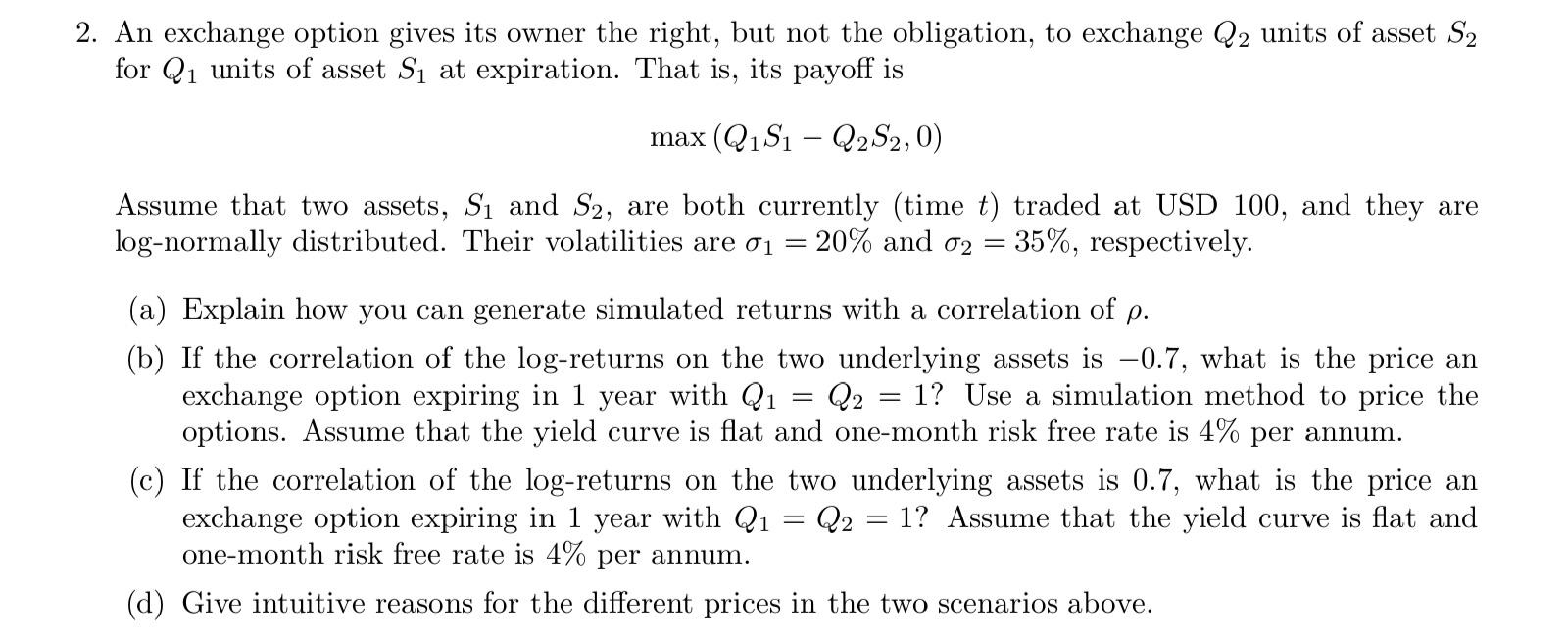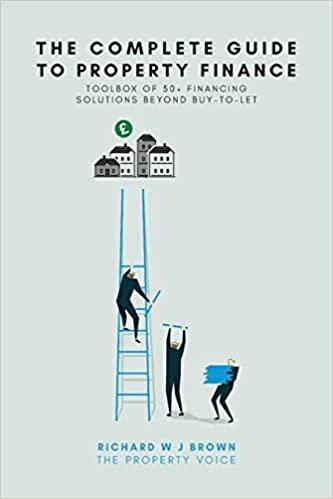
2. An exchange option gives its owner the right, but not the obligation, to exchange Q2 units of asset S2 for Q units of asset S at expiration. That is, its payoff is max (Q1S1 - Q2S2,0) Assume that two assets, S and S2, are both currently (time t) traded at USD 100, and they are log-normally distributed. Their volatilities are 01 = 20% and 02 = 35%, respectively. = (a) Explain how you can generate simulated returns with a correlation of p. (b) If the correlation of the log-returns on the two underlying assets is 0.7, what is the price an exchange option expiring in 1 year with Q1 Q2 = 1? Use a simulation method to price the options. Assume that the yield curve is flat and one-month risk free rate is 4% per annum. (c) If the correlation of the log-returns on the two underlying assets is 0.7, what is the price an exchange option expiring in 1 year with Q1 = Q2 = 1? Assume that the yield curve is flat and one-month risk free rate is 4% per annum. (d) Give intuitive reasons for the different prices in the two scenarios above. = 2. An exchange option gives its owner the right, but not the obligation, to exchange Q2 units of asset S2 for Q units of asset S at expiration. That is, its payoff is max (Q1S1 - Q2S2,0) Assume that two assets, S and S2, are both currently (time t) traded at USD 100, and they are log-normally distributed. Their volatilities are 01 = 20% and 02 = 35%, respectively. = (a) Explain how you can generate simulated returns with a correlation of p. (b) If the correlation of the log-returns on the two underlying assets is 0.7, what is the price an exchange option expiring in 1 year with Q1 Q2 = 1? Use a simulation method to price the options. Assume that the yield curve is flat and one-month risk free rate is 4% per annum. (c) If the correlation of the log-returns on the two underlying assets is 0.7, what is the price an exchange option expiring in 1 year with Q1 = Q2 = 1? Assume that the yield curve is flat and one-month risk free rate is 4% per annum. (d) Give intuitive reasons for the different prices in the two scenarios above. =







